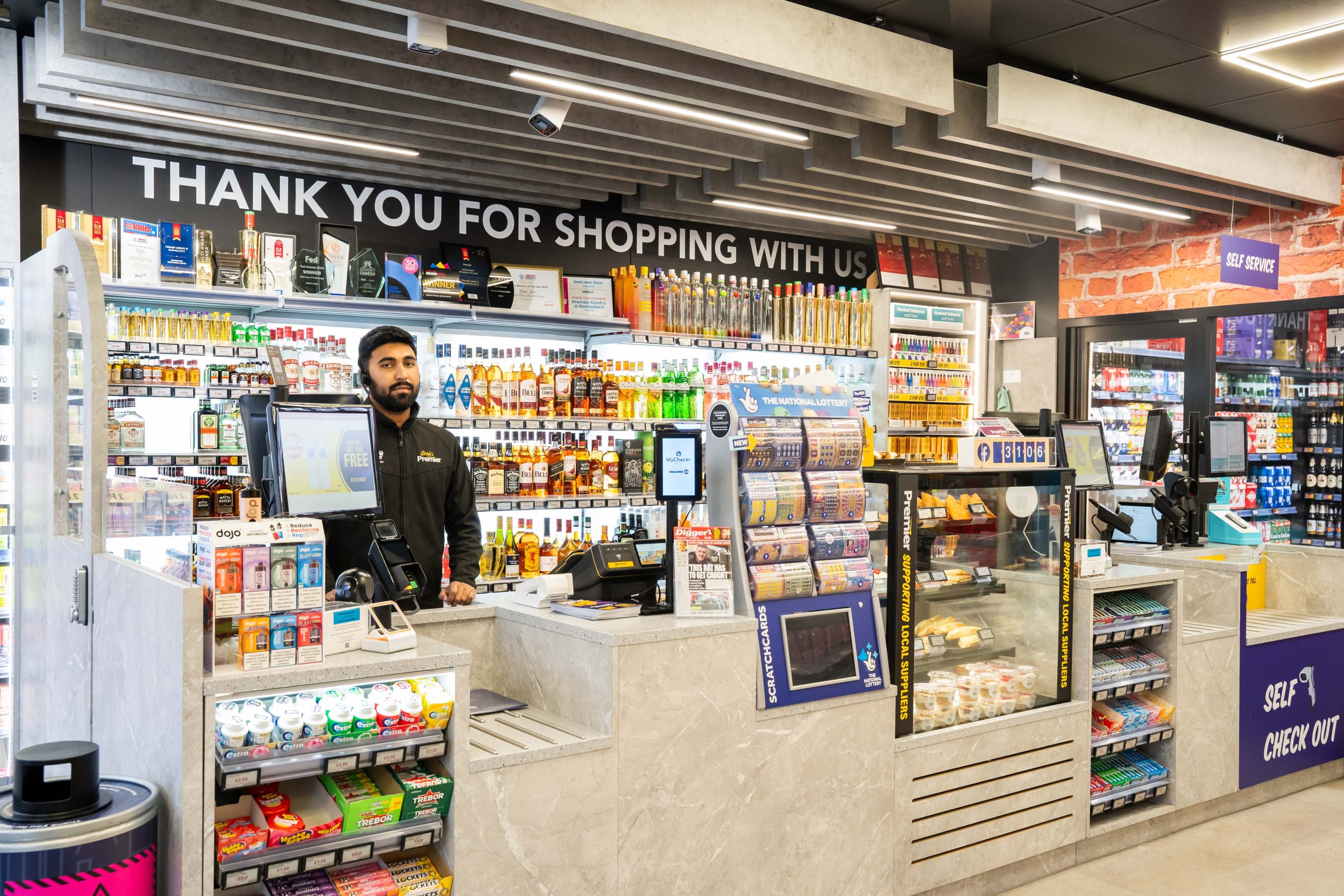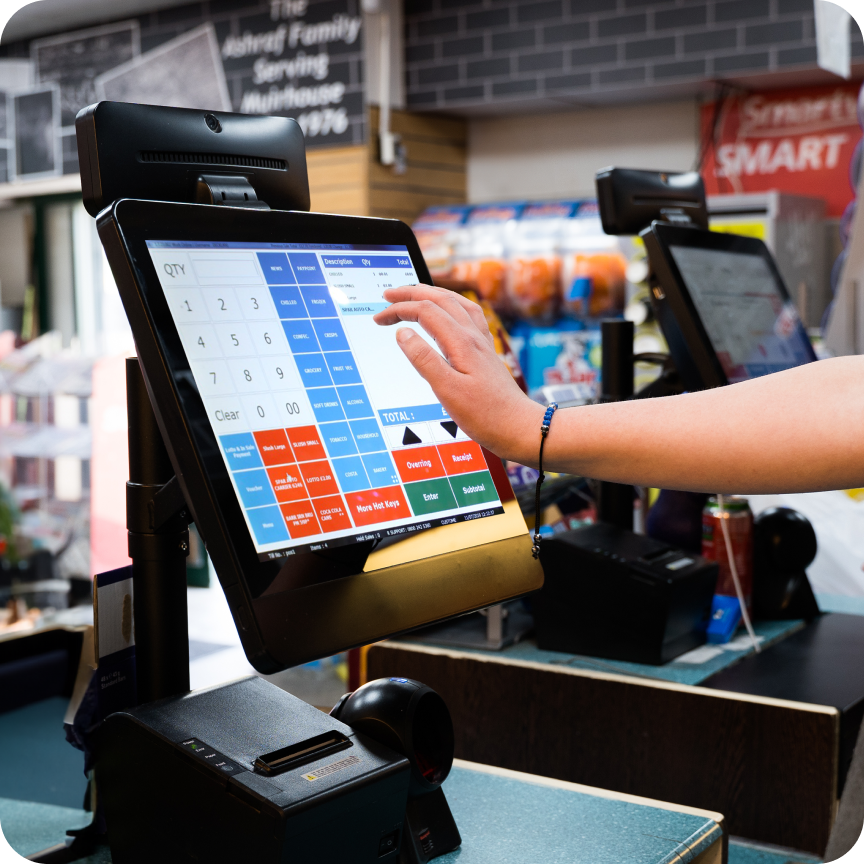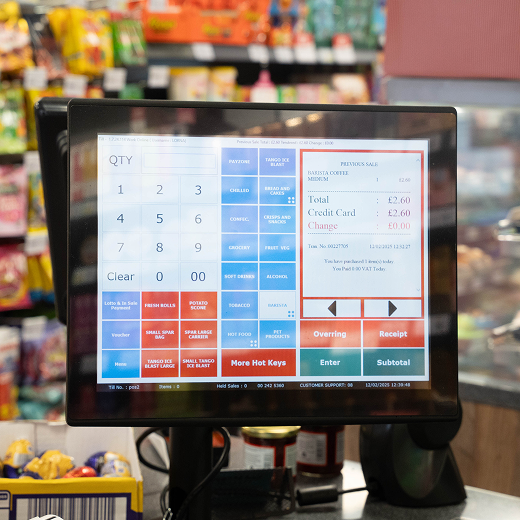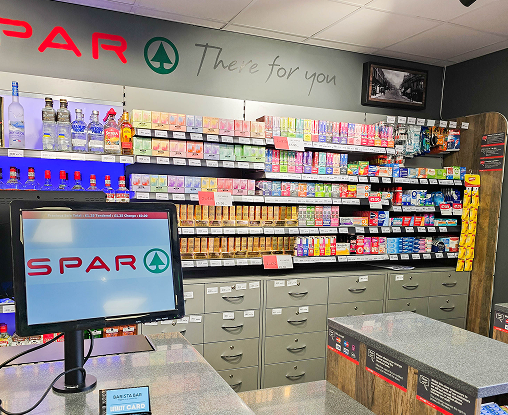Convenience stores remain the beating heart of British retail. From neighbourhood corners to busy forecourts, they account for almost one in five of all grocery sales in the UK, with over 48,000 stores nationwide. In 2024, the sector was valued at around £47.3 billion and is forecast to continue growing as shoppers favour proximity, speed, and top-up shopping over large, weekly supermarket trips.
But this growth comes with pressure. Rising labour costs, inflation in supply chains, and the demand for seamless digital experiences mean operators can no longer rely on traditional tills and intuition alone. Margins are thin, customers are increasingly tech-savvy, and competition from both supermarkets and quick-commerce apps (like Getir and Gorillas) is intensifying.

This is where artificial intelligence (AI) and predictive analytics enter the picture. Once confined to large supermarkets, AI-driven systems are now filtering down to independent and symbol-group C-stores. By harnessing the data already generated at the till from basket composition to time-of-day footfall, AI transforms a POS system from a record-keeper into a real-time decision engine
This article explains how AI-powered data analytics are reshaping C-store operations in the UK, gives concrete examples from leading retailers, and highlights practical steps and risks for operators considering the move.
Why AI now matters for UK convenience stores
C-stores face thin margins, unpredictable footfall, and rising expectations for speed and payment choice. AI and predictive analytics turn the mountains of daily transaction, loyalty, and stock data generated at the till into timely, actionable insight that can forecast demand, optimise staff rotas, personalise promotions, and flag shrinkage or machine faults before they cost money.
At the same time, the UK AI market for retail is scaling quickly, with investment in AI solutions for operations, supply chain visibility, and customer engagement accelerating. Many larger multiples have already begun integrating AI-driven platforms into their operations, and smaller stores are now following suit through more affordable cloud-based solutions.
Practical AI applications that deliver value
1. Demand forecasting and smarter inventory
Predictive models combine historical sales, weather forecasts, local events, and promotions to forecast demand at SKU and store level. For c-stores this reduces expensive stockouts on high-margin impulse items such as chilled drinks and hot food while preventing waste on perishables.
Example: Larger UK grocers such as Tesco have piloted AI platforms to improve supply-chain visibility and reduce dwell times. The learning from these larger retailers is filtering into convenience formats, resulting in tighter replenishment and fewer out-of-stocks.
2. Dynamic pricing and targeted promotions
AI can identify when to push a price promotion, such as when surplus stock or slow-moving SKUs need shifting, or when to offer a loyalty coupon to a high-value repeat shopper. For c-stores with limited shelf space, well-targeted offers preserve margin while lifting basket size.
3. Labour optimisation
Analytics-driven forecasting helps schedule the right number of staff for predicted busy windows such as commute times, Friday evenings, or match days, cutting unnecessary hours without compromising service.
4. Loss prevention and anomaly detection
Machine learning models detect unusual transaction patterns such as voids, repeated refunds, or atypical basket mixes. These systems can integrate with CCTV or weight sensors to quickly surface suspected theft or fraud.
5. Frictionless checkout and customer experience
Computer vision, self-checkout kiosks, and even “just walk out” formats are being tested in the UK. However, the closure of Amazon’s Fresh physical stores in Britain has highlighted that while the technology is advanced, it must align with consumer habits and the economics of running smaller-format shops.
AI for Supply Chain Visibility and Supplier Collaboration
The challenge of supply chain disruption
UK convenience stores have faced supply chain pressures in recent years, from driver shortages to global shipping delays. These challenges often hit smaller retailers hardest, as they lack the scale to buffer against disruptions.

How AI provides real-time visibility
AI-powered platforms can give managers a live view of supplier performance, delivery times, and potential bottlenecks. If a key delivery is late, the system can recommend contingency actions, such as adjusting order volumes or sourcing alternatives.
Predictive collaboration with wholesalers
For independents tied to symbol groups and wholesalers, AI can be a bridge. By pooling transaction data across multiple stores, wholesalers can anticipate spikes in demand and align stock levels more accurately. This reduces shortages of high-demand products and increases freshness on shelves.
Sustainability and efficiency benefits
Beyond availability, AI analytics optimise logistics and delivery. By identifying more efficient routes and consolidating deliveries, retailers can reduce costs and carbon emissions, aligning with the UK consumer push toward sustainable retail practices.
Measurable benefits operators can expect
When implemented thoughtfully, AI and analytics can deliver:
- Higher sales through personalised offers and better availability.
- Lower operational costs from reduced waste and optimised staffing.
- Improved customer retention through relevant loyalty rewards and quicker service.
- Faster decision cycles that allow managers to act on daily data rather than rely solely on intuition or monthly reports.
Real-world constraints and risks for UK c-stores
- Upfront and ongoing cost
AI platforms require significant investment in software, integration, and staff training. While larger chains can justify the cost, independents may need to adopt subscription-based software or partner with symbol groups to gain access. Operators must also consider ongoing expenses such as data storage, licensing, and vendor support. - Data quality and legacy systems
Predictive analytics depend on clean, timely, and accurate data. Many c-stores run on legacy EPOS systems that are not designed for real-time data streaming. Without upgrading or integrating middleware, insights may be limited or inaccurate. This can create frustration for managers expecting immediate results. - Consumer trust and regulation
UK shoppers are increasingly aware of how their data is used. While personalised promotions can increase engagement, misuse of data or lack of transparency can undermine trust. C-store operators must ensure compliance with UK data protection rules and maintain clear communication with customers about how their data is being applied. - Technology not a silver bullet
AI and automation will not automatically guarantee success. The Amazon Fresh example illustrates that even with cutting-edge technology, consumer preferences and financial sustainability remain the deciding factors. Smaller operators must carefully evaluate whether advanced systems add real value to their customer base.
How UK C-store owners should approach AI adoption
- Start small with a clear use case
Operators should focus on one high-impact area, such as demand forecasting for chilled products or rota optimisation, and run a pilot for several weeks to measure results.
- Leverage cloud-based solutions
Cloud-based SaaS platforms allow even small independents to use advanced AI without heavy infrastructure costs. Choosing vendors with proven retail experience helps reduce the learning curve.
- Ensure clean data pipelines
A successful AI rollout depends on accurate and consistent data. Owners should prioritise integrating EPOS, loyalty, and supplier data into a single system that can be analysed in real time.
- Define and track key performance indicators
Measurable outcomes such as reduction in waste percentage, improvement in stock availability, labour hours saved, and uplift from targeted promotions should be tracked to evaluate effectiveness.
- Invest in staff training and customer communication
Employees must understand how to interpret AI recommendations and adjust store operations accordingly. Customers should be informed about personalisation benefits and given clear opt-out options to maintain trust. - Scale iteratively
Once early wins are proven, stores can expand AI use into areas like shrinkage detection, automated replenishment, or advanced loyalty personalisation. Scaling gradually reduces risk and helps secure buy-in from staff and customers alike.
MPOS: AI-Driven POS Innovation from Scotland
A strong example of how AI is being embedded into convenience retail operations is MPOS, an advanced EPOS solution developed by MHouse Business Solutions Ltd, headquartered in Motherwell, Scotland. Unlike many off-the-shelf systems, MPOS is designed by retailers, for retailers, ensuring that its features align closely with the day-to-day challenges of UK convenience operators.
Full-service EPOS built for C-stores
MPOS is a feature-packed EPOS platform that goes beyond traditional checkout functions. It is engineered to streamline workflows, reduce staff hours, increase sales, and enhance both security and customer experience. For convenience store staff, the system delivers cost efficiency and better control of daily operations, ultimately improving the bottom line.
MPOS AI: Powered by Visu AI
The real leap forward comes with MPOS AI, which integrates the advanced capabilities of Visu AI technology. This intelligent layer transforms how retailers track inventory, manage security, and extract business intelligence.

- Effortless Inventory Tracking
Automatically track products in-store with object recognition. Receive instant updates on stock levels, eliminate manual discrepancies, and optimise ordering processes. - Enhanced Security with Intelligent Alerts
AI algorithms detect unauthorised object movement, suspicious cash activity, voids, or lottery and scratchcard anomalies. Staff are notified instantly so they can address potential threats before they escalate. - Gain Actionable Insights
Analyse object movement patterns to optimise store layout, product placement, and in-store marketing efforts. Managers gain visibility into shopper behaviour that was previously hidden. - Advanced Object Recognition
From standard merchandise to equipment and high-value items, the system can accurately identify and monitor a wide range of assets. - Real-Time Alerts
Whether it is a stock issue or a potential theft, the system provides immediate notifications to ensure swift response.
Seamless Integration for Retailers
A key advantage of MPOS AI is its ability to integrate smoothly with existing MPOS systems, minimising disruption. Retailers do not need to overhaul infrastructure to adopt the technology. Instead, they gain the benefits of AI-enhanced intelligence on top of their current setup.
Why MPOS matters for UK c-stores
By combining the everyday functionality of EPOS with advanced AI analytics, MPOS positions itself as more than just a till system. It is a strategic partner for UK convenience stores looking to:
- Improve profitability through smarter stock control.
- Strengthen loss prevention with AI-driven detection.
- Enhance customer loyalty through improved service and tailored experiences.
- Gain real-time business intelligence for more confident decision-making.
In short, MPOS showcases how local innovation in Scotland is providing UK retailers with the tools to compete in an increasingly data-driven market. The biggest reason convenience store owners should consider MPOS is that it has been built by people who know retail. It is designed for real-world store operations, not just theoretical tech solutions. Every feature from stock tracking to fraud detection addresses problems retailers face daily.
Looking ahead for UK convenience stores
The next few years are unlikely to bring a sudden shift to fully autonomous shops, but AI will become more embedded in everyday C-store management. The most realistic developments include:
- Wider use of AI in forecasting and rota optimisation
As systems become more affordable, expect even small independent stores to adopt predictive analytics for demand planning and staff scheduling. - Collaborative data partnerships
Symbol groups and wholesale partners may begin pooling data to build more powerful forecasting tools for their member stores. Shared insights can help independents compete with the data sophistication of multiples. - Hybrid store models
Instead of fully cashierless operations, more stores will adopt a blend of assisted self-checkouts and mobile payment options. These solutions improve speed without alienating customers who still value human interaction. - Integration with IoT and sustainability goals
AI will increasingly connect with IoT devices such as smart shelves and connected refrigerators. This not only improves availability but also supports sustainability targets by reducing food waste and energy use. - Greater emphasis on ethical AI
With growing public debate around artificial intelligence, UK consumers will expect transparency in how their shopping data is used. Operators that adopt ethical AI practices and communicate openly will gain an edge in trust and loyalty.
The Next Chapter of Convenience
The future of UK convenience retail will not be written in ink but in algorithms. AI-powered analytics are quietly reshaping the corner shop into a smarter, leaner, and more customer-centric hub. What once was just a till ringing up purchases is fast becoming the brain of the store, anticipating needs before they arise, balancing stock with precision, and shaping loyalty through relevance rather than guesswork.
For operators who embrace this shift, the reward is not just efficiency but resilience: the ability to thrive in a competitive, ever-changing market. The c-stores that succeed will be those that marry the timeless value of local convenience with the predictive power of modern intelligence. In other words, the future shop on the high street will be both human at heart and digital at its core, a fusion that promises to redefine what “convenience” truly means.















